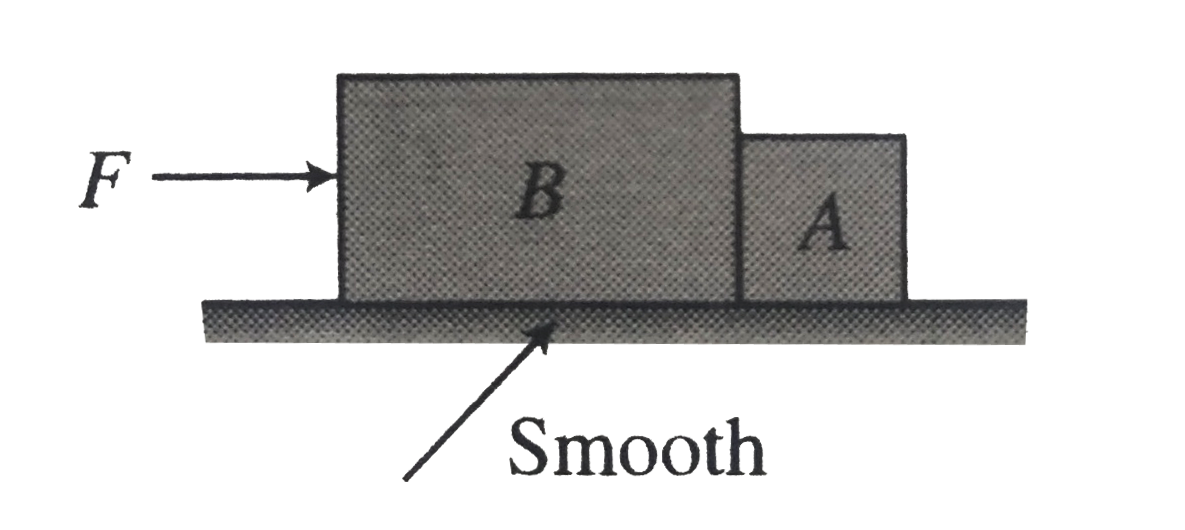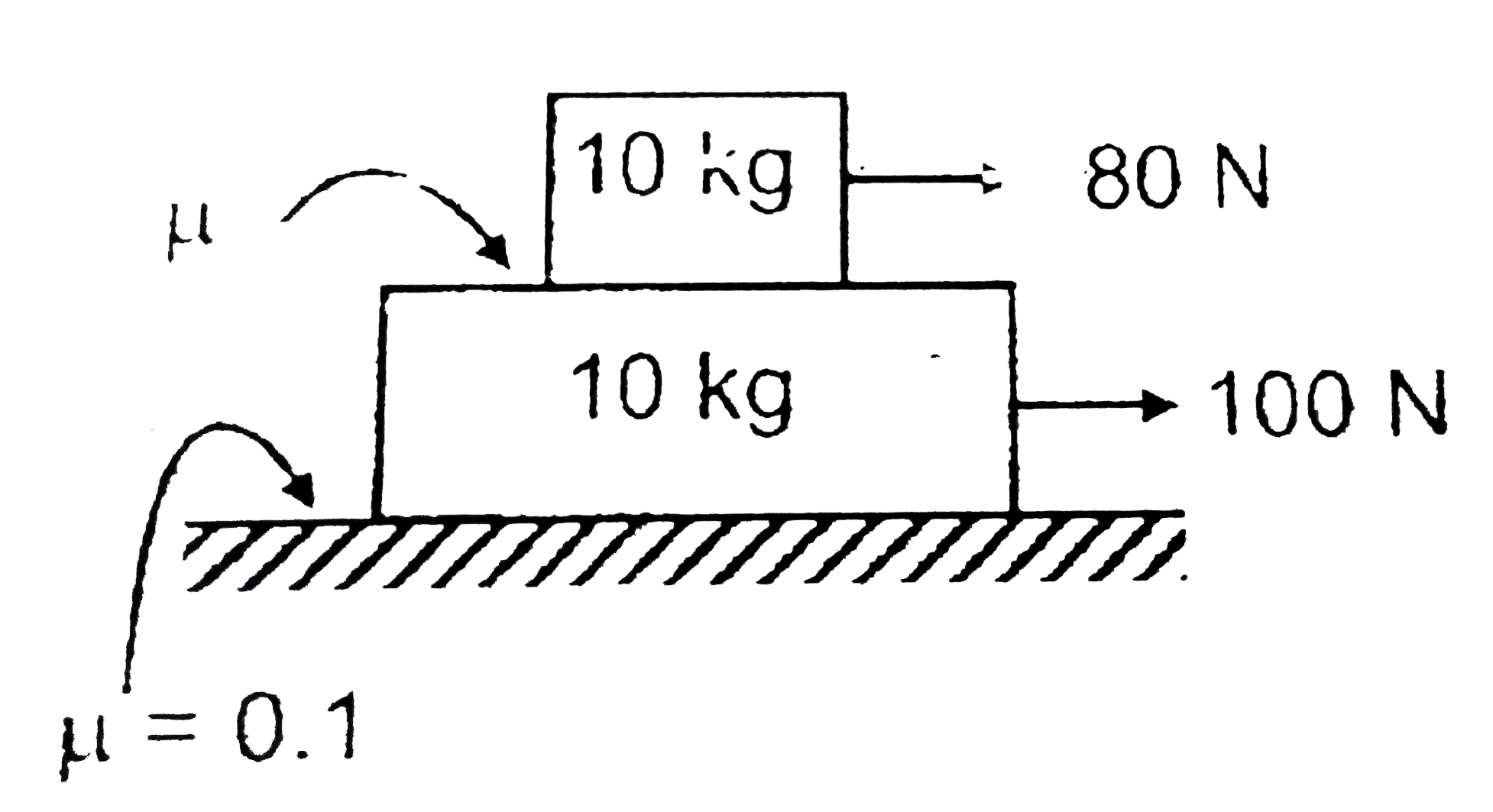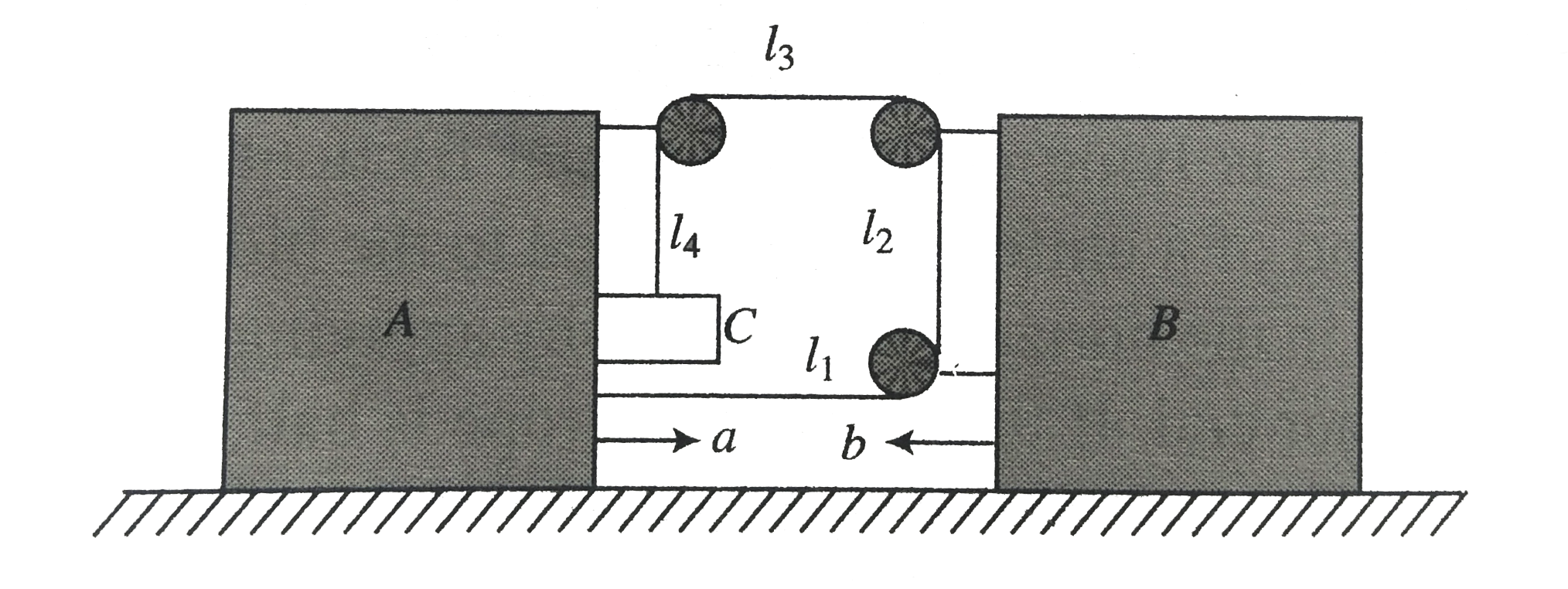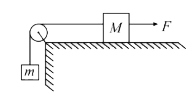Statement I: In fig., ground is smooth and masses of both the block are differents. The net force acting on each of the block is not same.

Statement II: Acceleration of both will be different.
Statement I is true, statement II is true, Statement II is the correct explanation for statement I.
Statemet I is true, Statement II is true , Statement II is NOT the correct explanation for Statement I
Statement I is True, Statement II is False.
Statement I is False, Statement II is true
The correct Answer is:C
Here acceleration of both will be same, but their masses are different. Hence, net force acting on each of them will not be same.
Topper's Solved these Questions
- NEWTON'S LAWS OF MOTION 1BOOK - CENGAGE PHYSICSCHAPTER - NEWTON'S LAWS OF MOTION 1EXERCISE - Linked Comperhension
46 Videos
- NEWTON'S LAWS OF MOTION 1BOOK - CENGAGE PHYSICSCHAPTER - NEWTON'S LAWS OF MOTION 1EXERCISE - Integer
5 Videos
- NEWTON'S LAWS OF MOTION 1BOOK - CENGAGE PHYSICSCHAPTER - NEWTON'S LAWS OF MOTION 1EXERCISE - Multiple Correct
11 Videos
- MISCELLANEOUS VOLUME 2BOOK - CENGAGE PHYSICSCHAPTER - MISCELLANEOUS VOLUME 2EXERCISE - INTEGER_TYPE
10 Videos
- NEWTON'S LAWS OF MOTION 2BOOK - CENGAGE PHYSICSCHAPTER - NEWTON'S LAWS OF MOTION 2EXERCISE - Integer type
1 Videos
Similar Questions
Knowledge Check
Statement-1: Tension in a massless string may be different at different points.
Statement-2: Net force on a massless object is zero.AStatement-1 is true, statement-2 is true and statement-2 is correct explanation for statement-1.BStatement-1 is true, statement-2 is true and statement-2 is NOT the correct explanation for statement-1.CStatement-1 is true, statement-2 is false.DStatement -1 is false, statement -2 is true.Statement I: A block of mass m is placed on a smooth inclined plane of inclinaton θ with the horizontal. The force exerted by the plane on the block has a magnitude mgcosθ.
Statement II: Normal reaction always acts perpendicular to the contact surface.AStatement I is true, statement II is true, Statement II is the correct explanation for statement I.BStatemet I is true, Statement II is true , Statement II is NOT the correct explanation for Statement ICStatement I is True, Statement II is False.DStatement I is False, Statement II is true
Find minimum μ between the block so that both blocks move with same acceleration.A0B1C2D3
If the mass of a body and the force acting on it are both doubled, what happens to the acceleration ?
View SolutionIf the blocks A and B are moving towards each other with accelerations a and b shown in fig. find the net acceleration of block C.

View SolutionIn the figure shown, all surfaces are smooth and the pulley is massless. A constant force of magnitude F=mg2 is acting on the block of mass M. The acceleration of the block M is :

View SolutionStatement-1: A block is immersed in a liquid inside a beaker which is falling freely buoyant force acting on block is zero.
Statement-2: In case of freely falling liquid there is no pressure difference between any two points._E01_151_Q01.png)
View SolutionAssertion: Two bodies of masses M and m(M>m) are allowed to fall from the same height if the air resistance for each be the same then both the bodies will reach the earth simultaneously.
Reason: For same air resistance, acceleration of both the bodies will be same.
View Solution
